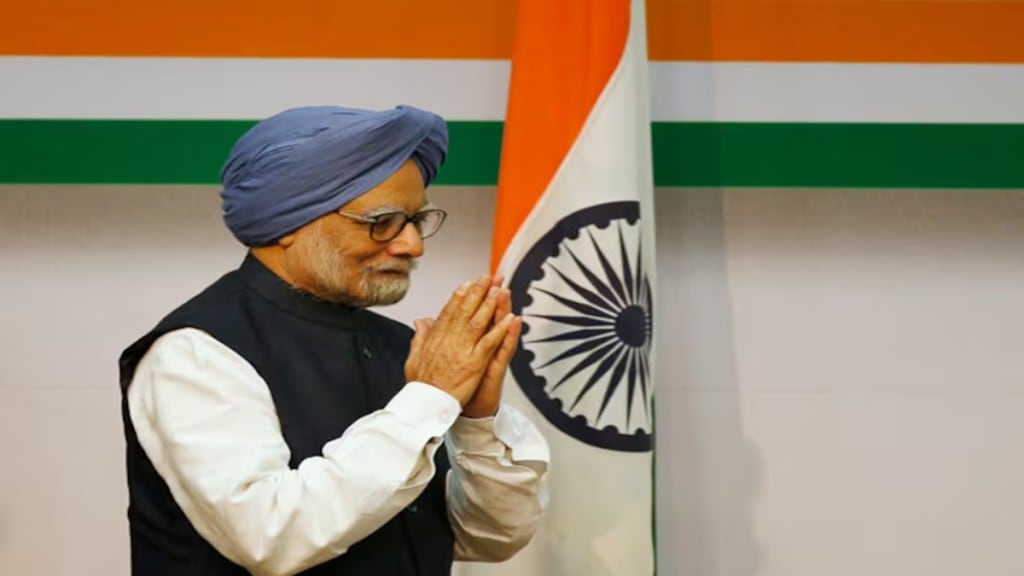Former Prime Minister Manmohan Singh, a distinguished economist and architect of India’s economic reforms, passed away on Thursday at the age of 92 due to age-related medical conditions. The government has declared seven days of mourning, along with a state funeral, to honour the Congress leader. Prime Minister Narendra Modi expressed his condolences, stating, “India mourns the loss of one of its most distinguished leaders.”
Tributes Pour in from Across the Globe
Tributes to Singh’s legacy came from world leaders, diplomats, and prominent personalities. US Secretary of State Antony Blinken highlighted Singh’s pivotal role in strengthening India-US relations including the landmark Civil Nuclear Cooperation Agreement, which significantly boosted US-India ties. He called him “one of the greatest champions of the US-India strategic partnership.”
Ambassadors from China, Israel, Russia, and the US reflected on his contributions to bilateral and global relationships.
China, Israel, Russia, and the US all conveyed their sorrow and recalled Singh’s efforts to elevate India’s global standing. The Chinese Ambassador to India, Xu Feihong, expressed his sadness, calling Singh an “outstanding leader” revered by the Indian people. Israeli Ambassador Reuven Azar fondly remembered Singh for his leadership, which elevated India-Israel relations to new heights.
Global Media Reflects on Singh’s Legacy
International media outlets acknowledged Singh’s achievements, controversies, and the indelible mark he left on Indian politics.
The New York Times described Singh as a “soft-spoken” and “cerebral” leader responsible for reforms that propelled India as an economic powerhouse. It also acknowledged the controversies surrounding his second term, particularly regarding the handling of terrorism and corruption. The publication also underscored the challenges faced by Singh’s administration, particularly in addressing domestic terrorism, with the 2008 Mumbai terror attacks being a notable example, as well as controversies surrounding corruption scandals during his second term from 2009 to 2014.
The UK-based BBC referred to the former prime minister as “the architect of key liberalising economic reforms.” The broadcaster highlighted that Singh’s appointment as prime minister marked the beginning of an ambitious and groundbreaking economic reform agenda. His policies included tax cuts, the devaluation of the rupee, the privatisation of state-owned enterprises, and the promotion of foreign investment.
US-based Associated Press credited Singh for navigating India through a potential economic crisis with his 1991 reforms. The Washington Post highlighted his contributions to strengthening India-US relations, particularly the Indo-US Civil Nuclear Agreement.
The Washington Post described him as “the soft-spoken Oxford-educated economist whose financial reforms helped transform his struggling, poverty-stricken nation into an emerging power”. It highlighted his rise from a technocrat to a leader who strengthened US-India ties, including the landmark 2005 Civil Nuclear Agreement.
Reuters portrayed Singh as a “reluctant prime minister” who ultimately became one of India’s most accomplished prime ministers. The agency credited Singh with lifting millions out of poverty through economic reforms while navigating the complexities of coalition politics.
Al Jazeera described him as a “mild-mannered technocrat,” praising his integrity and emphasising his transformative 1991 economic reforms. It also recalled his 2014 statement: “I firmly believe that history will judge me more favourably than the contemporary media or opposition parties in Parliament.”
Singh’s tenure as the 13th Prime Minister of India was marked by significant milestones:
Economic Growth: As the architect of the 1991 reforms, Singh steered India’s economy toward liberalization, paving the way for growth and development.
Strengthening Global Ties: Singh deepened India’s relationships with global powers, particularly through the Indo-US Civil Nuclear Agreement.
Challenges and Criticism: His leadership faced scrutiny over domestic terrorism, including the 2008 Mumbai attacks, and corruption scandals during his second term.
Singh’s mild-mannered demeanour and technocratic expertise defined his leadership. His tenure as Prime Minister saw India’s emergence on the global stage and its recognition as a rising economic force.
Born in Punjab in 1932, Singh’s illustrious career spanned decades, from his pivotal role in academia and the Reserve Bank of India to his tenure as Finance Minister and Prime Minister. Retiring from the Rajya Sabha earlier this year, he ended a 33-year legacy in India’s upper house of Parliament.
Manmohan Singh’s passing marks the end of an era. His contributions to India’s economic policies and international diplomacy continue to shape the nation’s trajectory. Tributes from across the globe underscore his influence, with leaders emphasizing his vision, humility, and dedication to India’s growth and prosperity.
Singh’s legacy as an economist, reformer, and statesman will remain an enduring source of inspiration for generations to come.

